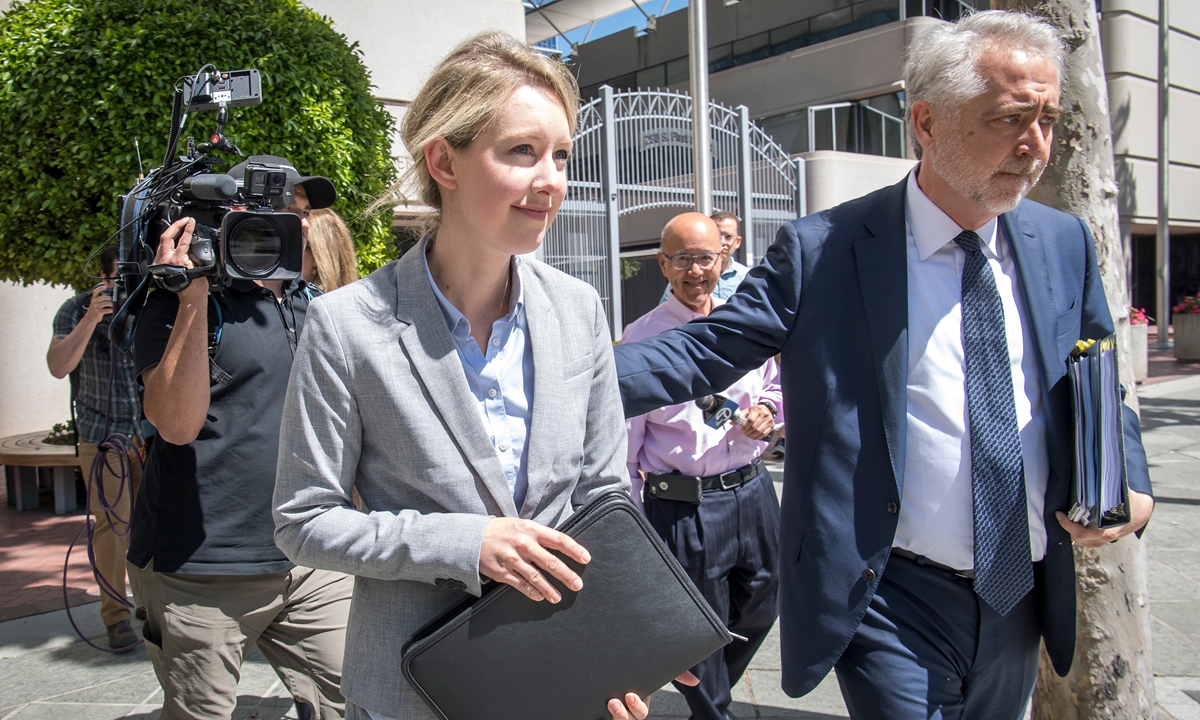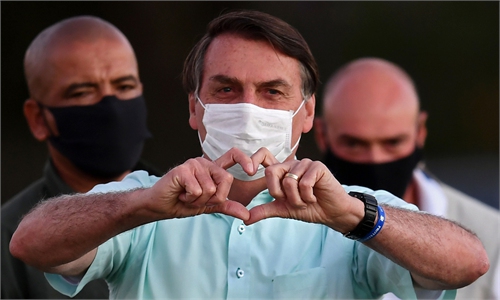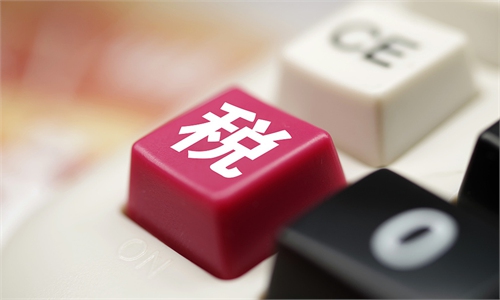Theranos founder’s fraud trial to begin in September
California hustle comes to end

Elizabeth Holmes, founder and former chief executive officer of Theranos Inc, exits federal court in San Jose, California, US, on Monday, April 22, 2019. Photo:VCG
A female entrepreneur whose multi billion dollar start-up looked set to revolutionize medical testing, before it crashed and burned in a blaze of fraud claims, goes on trial in September.
When she launched the diagnostics company Theranos in 2003, at the age of just 19, the charismatic Elizabeth Holmes promised results that were faster and cheaper than traditional laboratories, running an analytical gamut on just a few drops of blood.
Political grandees like Henry Kissinger and James Mattis were drawn to the company's board; media mogul Rupert Murdoch invested his cash in what seemed to be a sure-fire winner.
Holmes was lauded as a visionary, drawing comparisons with Apple founder Steve Jobs.
But years of hype, and billions of dollars later, those promises unspooled; the miracle machines did not work.
And, say prosecutors, Holmes knew it, yet continued to lie to investors, doctors and patients so she could raise more than $700 million.
At her long delayed trial, which begins in September in California, Holmes faces nine charges of wire fraud and two of conspiracy to commit wire fraud that could see her jailed for up to 20 years.
"In terms of how much money the government has alleged lost, this case is actually not the biggest health care fraud case in 2020. There are many larger health care fraud cases than the Theranos trial," says Jason Mehta, a lawyer and former prosecutor specializing in health care fraud.
"But in terms of media attention and scrutiny, it certainly ranks right up there as one of the bigger cases in the past."
Jurors, who will be selected from Tuesday, could hear from former board members like Kissinger and Mattis, as well as from Murdoch. But they may also hear from patients who were victims of the faulty tests, and received misdiagnoses of cancer, HIV or pregnancy.
According to John Carreyrou, the Wall Street Journal reporter who first broke the story and has since written a book about the scandal, Holmes was a true believer in her vision of cheap blood tests, even if she knew the facts didn't really fit.
"Not to say that she didn't know along the way that she was lying at certain junctures and cutting corners, but she felt that was justifiable and the goal was noble," Carreyrou told CNBC in July.
AFP



